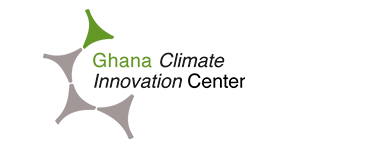Ghana-based Sesi Technologies provides simple and affordable solutions for the agricultural sector. The company was started in 2018. Co-founder and CEO Isaac Sesi (27) answers our questions.
1. Give us your elevator pitch.
Sesi Technologies is an agriculture technology company that develops affordable technology-enabled solutions for farmers and agribusiness to help them reduce losses, increase productivity and maximise profits.
Our current offerings include our flagship product, GrainMate, a grain moisture meter which helps anyone who works with grains to easily measure the moisture content in their grains to reduce post-harvest losses. The GrainMate platform also helps farmers cooperatives access good markets for their grain commodities so they can maximise their revenue.
2. How did you finance your startup?
Sesi Technologies was initially financed through a large pre-order by an international non-profit. This gave us the funds we needed to produce our first 150 units and hire our first employee. After that, Sesi Technologies has been largely financed through revenue from sales of our moisture meters as well as providing other services. We have also raised significant funding through grants from Generation Africa, Siemens Stiftung Foundation, The American Society of Mechanical Engineers, Ghana Climate Innovation Centre, and more.
3. If you were given $1 million to invest in your company now, where would it go?
It will be invested in three main areas. Firstly, technology and product development. With the money, we can bring onboard great, highly skilled engineers to catalyse the development of our core technologies. Secondly, rather than go to China, we plan to do most of our manufacturing in Africa. So we’d set up a manufacturing facility as well as increase our manufacturing capacity. Thirdly, we’d invest in marketing. As our solutions are new locally; a lot of marketing is needed to create the awareness needed for mass adoption.
4. What risks does your business face?
Supply chain risks. This has been most evident in this Covid-19 period as the breakdown of global supply chains made it almost impossible for us to source our raw materials and electronics components, many of which we import. Finding highly skilled hardware engineers has also been a challenge as our field is new.
 5. So far, what has proven to be the most successful form of marketing?
5. So far, what has proven to be the most successful form of marketing?
Direct marketing to key stakeholders across the agriculture value chain. Many farmers are risk-averse and being able to demonstrate the impact of our solutions through an evidence-based approach – showing testimonials of other farmers that have experienced good results from using our products – has been a game-changer in getting them interested in using our products. We are also constantly working with other agencies who have already built trust with farmers and leveraging that trust to engage farmers directly.
6. Describe your most exciting entrepreneurial moment.
Winning the GoGettaz Agripreneur Prize last year. Out of more than 3,000 applicants and after an intense pitch competition that brought together some of the best young entrepreneurs on the continent, we won the coveted $50,000 prize. For me, winning the award went beyond the money. It was a validation of all the hard work and effort my team had put in, in our quest to develop solutions for the most vulnerable people along the agriculture value chain – smallholder farmers.
7. Tell us about your biggest mistake, and what you’ve learnt from it?
My biggest mistake was terribly underestimating how long it would take us to build our product. We were new to building commercial hardware products and we didn’t anticipate all the challenges we would face along the way. This led to us overpromising our biggest customer who had made a huge bet on us. It almost caused our downfall. Now we know better.
Source: How We Made It In Africa

